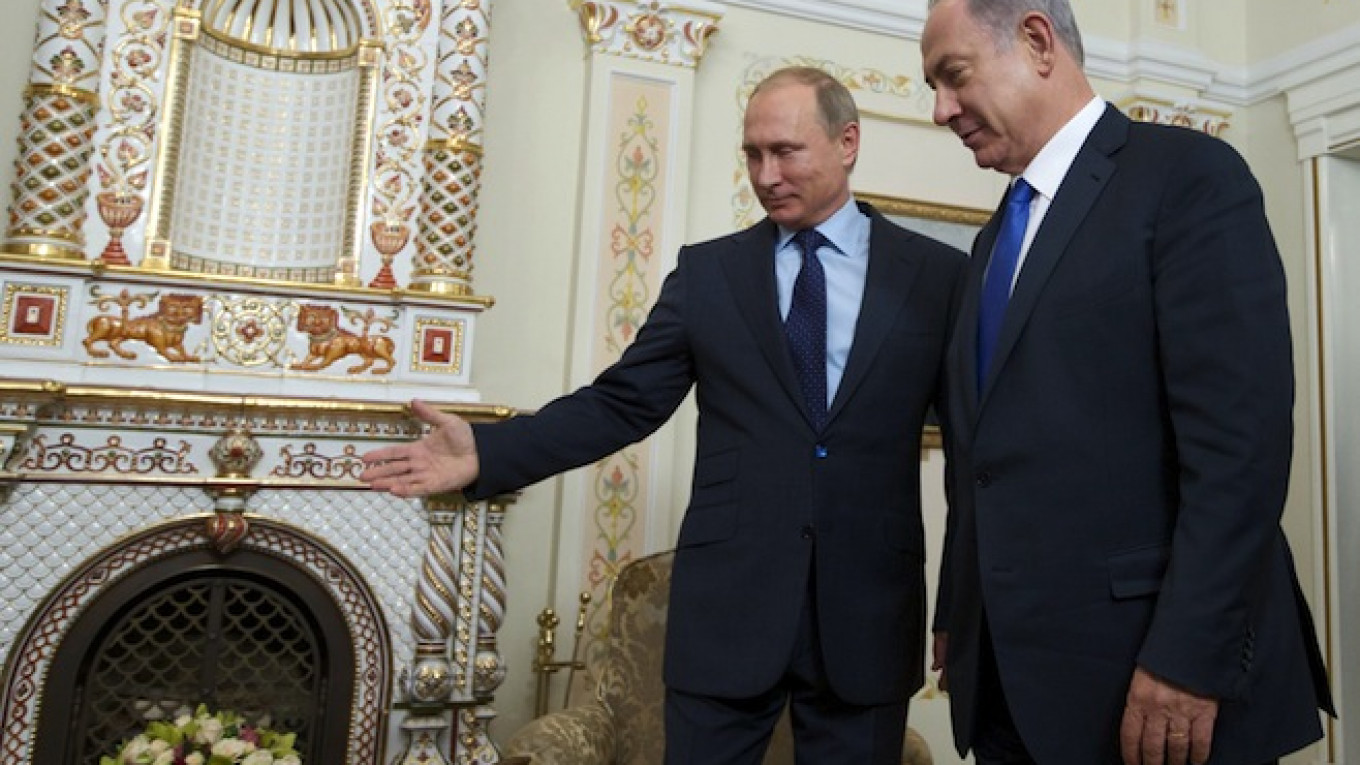A senior Russian military delegation will visit Israel on Tuesday for two days of talks on how the countries can avoid accidentally clashing while operating in Syria, an Israeli military officer said.
Israeli Prime Minister Benjamin Netanyahu and Russian President Vladimir Putin agreed on Sept. 21 to set up teams as Moscow steps up military support for Syrian President Bashar Assad, who has been losing ground to an Islamist-led insurgency.
Israel is worried the Russian deployment, which includes advanced anti-aircraft units and warplanes, risks pitting Russian forces against its own over Syria.
Israel has attacked Syrian armed forces and arch-foe Lebanese Hezbollah, a Damascus ally, during the four-year civil war in its hostile neighbor. It has said it holds the Syrian government responsible for any spillover of violence.
On Sept. 27, Israel struck Syrian army targets on the Golan Heights in retaliation for cross-border rocket fire. In August, it waged its heaviest bombardment since the conflict began, killing Palestinian militants in response to cross-border fire.
The Russian delegation will be led by First Deputy Chief of General Staff General Nikolai Bogdanovsky, who will meet his Israeli counterpart, Deputy Chief of Staff Major-General Yair Golan.
"The two will meet at military command headquarters in Tel Aviv as part of the two-day visit of the Russian army delegation to Israel. Among other matters, they will discuss regional coordination issues," the Israeli officer said Monday.
After Putin and Netanyahu met, an Israeli military officer, who spoke on condition of anonymity, said the countries would focus on aerial operations in Syria and "electromagnetic coordination."
The latter appeared to refer to the sides agreeing not to scramble each others' radio communications or radar-tracking systems, and devising ways of identifying each others' forces to avoid any unintended confrontation in the heat of battle.
Israel and Russia will also coordinate on sea operations off Syria's Mediterranean coast, where Moscow has a major naval base, the Israeli officer said.
In explaining Israel's objectives in coordination with the Russians, Netanyahu told CNN in an interview on Sunday: "I went to Moscow to make it clear that we should avoid a clash between Russian forces and Israeli forces."
"In Syria, I've defined my goals. They're to protect the security of my people and my country. Russia has different goals. But they shouldn't clash," he said.
When asked by Reuters about the talks, an official at the Russian embassy in Israel declined to comment.
A Message from The Moscow Times:
Dear readers,
We are facing unprecedented challenges. Russia's Prosecutor General's Office has designated The Moscow Times as an "undesirable" organization, criminalizing our work and putting our staff at risk of prosecution. This follows our earlier unjust labeling as a "foreign agent."
These actions are direct attempts to silence independent journalism in Russia. The authorities claim our work "discredits the decisions of the Russian leadership." We see things differently: we strive to provide accurate, unbiased reporting on Russia.
We, the journalists of The Moscow Times, refuse to be silenced. But to continue our work, we need your help.
Your support, no matter how small, makes a world of difference. If you can, please support us monthly starting from just $2. It's quick to set up, and every contribution makes a significant impact.
By supporting The Moscow Times, you're defending open, independent journalism in the face of repression. Thank you for standing with us.
Remind me later.



